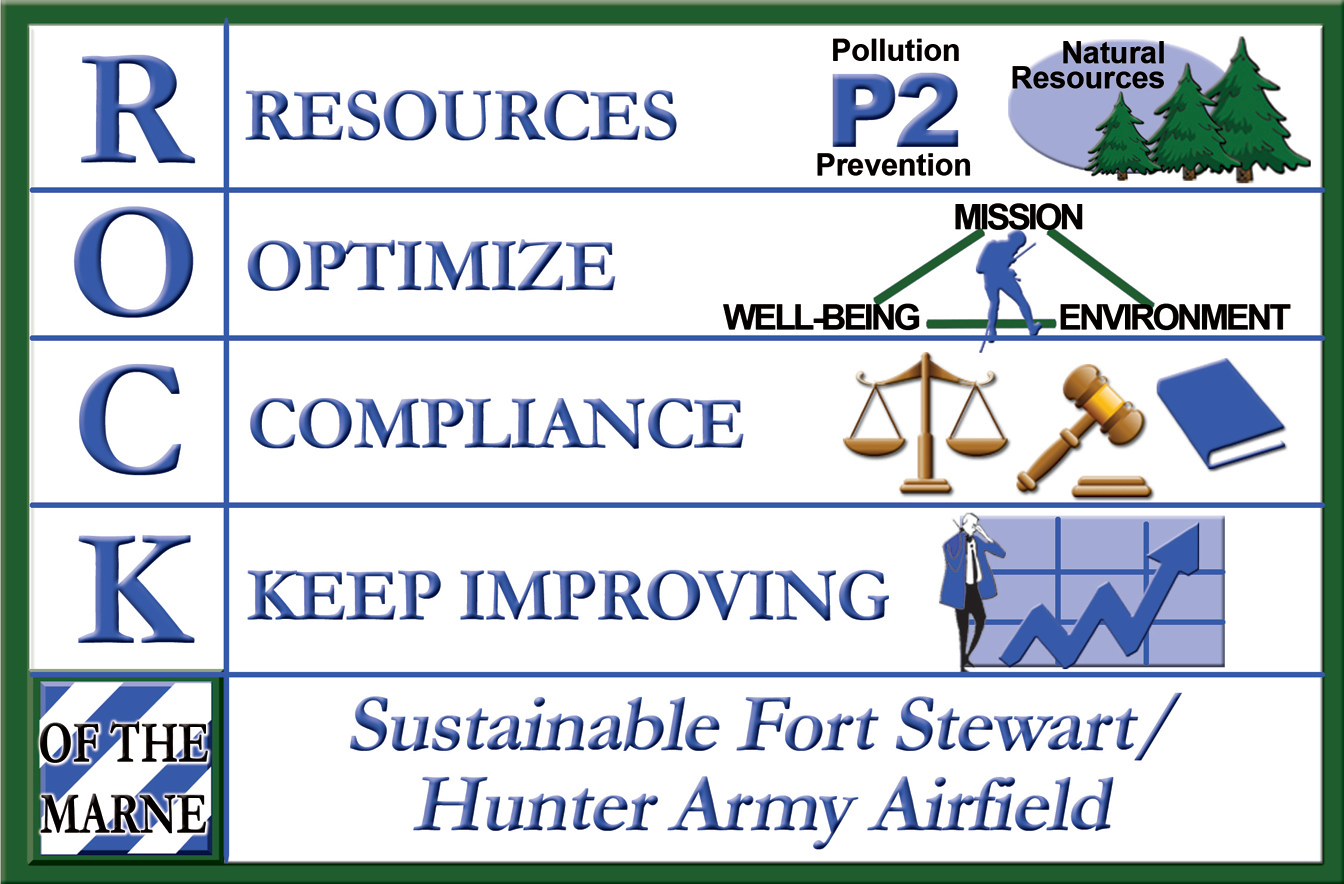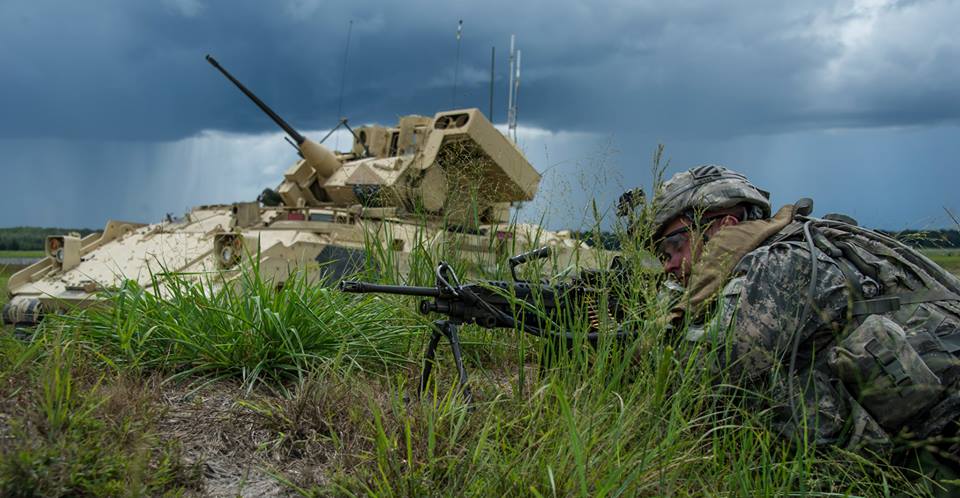At Fort Stewart/Hunter Army Airfield (FSGA/HAAF), sustainability means being able to ensure that both current and future Soldiers have the land, water, and air resources they need to train; a healthy environment in which to live; and the support of local communities. To achieve this goal, FSGA/HAAF maintains an effective, integrated Sustainability Management System (SMS). The SMS balances mission, well-being and environmental concerns to ensure the long-term ability of our installation to train and deploy combat-ready Soldiers. The SMS provides an environmental management framework and policies for preventing pollution, conserving natural resources, improving environmental stewardship, and complying with federal, state, and local regulations. The SMS is a fenceline to fenceline management system, taking into consideration all the activities that are performed on the installation. Its success is dependent on installation-wide support.
Sustainability Management System
SMS POLICY
FSGA/HAAF’s SMS has developed a sustainability policy based on the famous 3rd Infantry Division motto “Rock of the Marne,” with each of the four letters of the word “ROCK” representing one of the Installation's sustainability commitments.
R = Resources: By practicing pollution prevention, we are helping to secure the future of the natural resources our Installation provides.
O = Optimize: By improving our sustainability efforts, we are also optimizing the mission, well-being, and environment for the Installation and our neighboring communities.
C = Compliance: Our sustainability efforts keep us in compliance with local, state, and federal environmental regulations.
K = Keep Improving: We must all be aware of the long-term impacts of our actions and how we can work to reduce the footprint we leave on this environment.
SIGNIFICANT ASPECTS
Environmental aspects are features or characteristics of an activity, product, or service that affect or can affect the environment. FSGA/HAAF’s significant aspects are land use, energy use, and water use. From those aspects, the SMS focuses on water and energy conservation, threatened and endangered species management, and solid waste reduction. Everyone on the Installation can support sustainability by recycling at home and at work, conserving water, conserving energy, and protecting the environment for threatened and endangered species.







 The SMS Program is focused on maintaining a sustainable training environment that ensures Soldier readiness today and far into the future.
The SMS Program is focused on maintaining a sustainable training environment that ensures Soldier readiness today and far into the future.